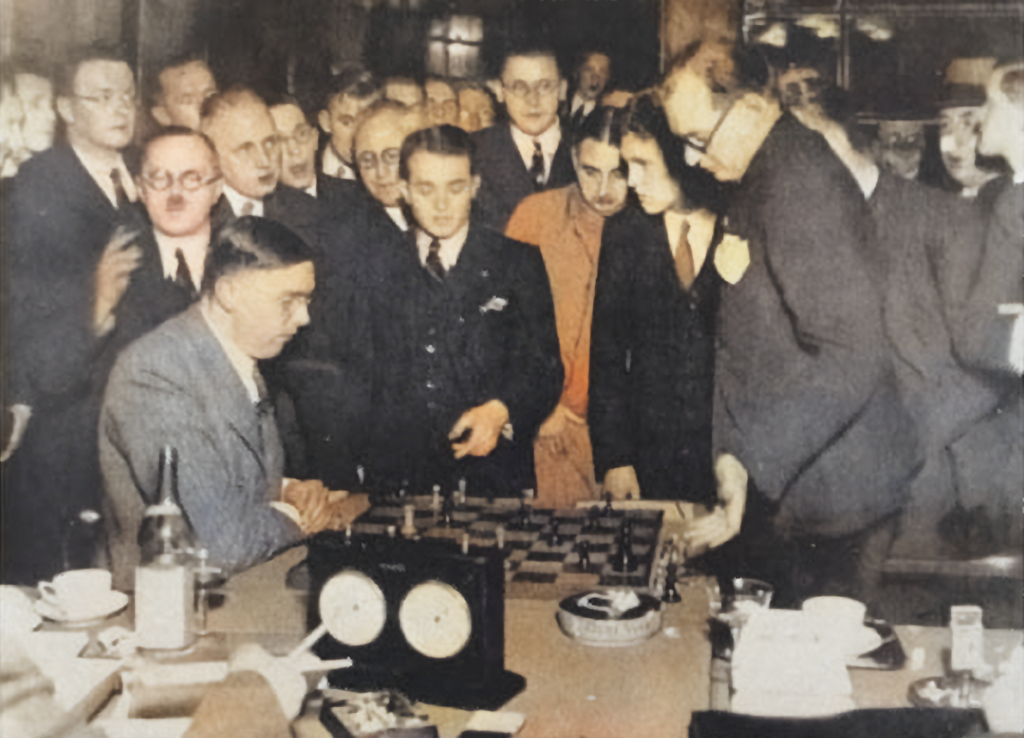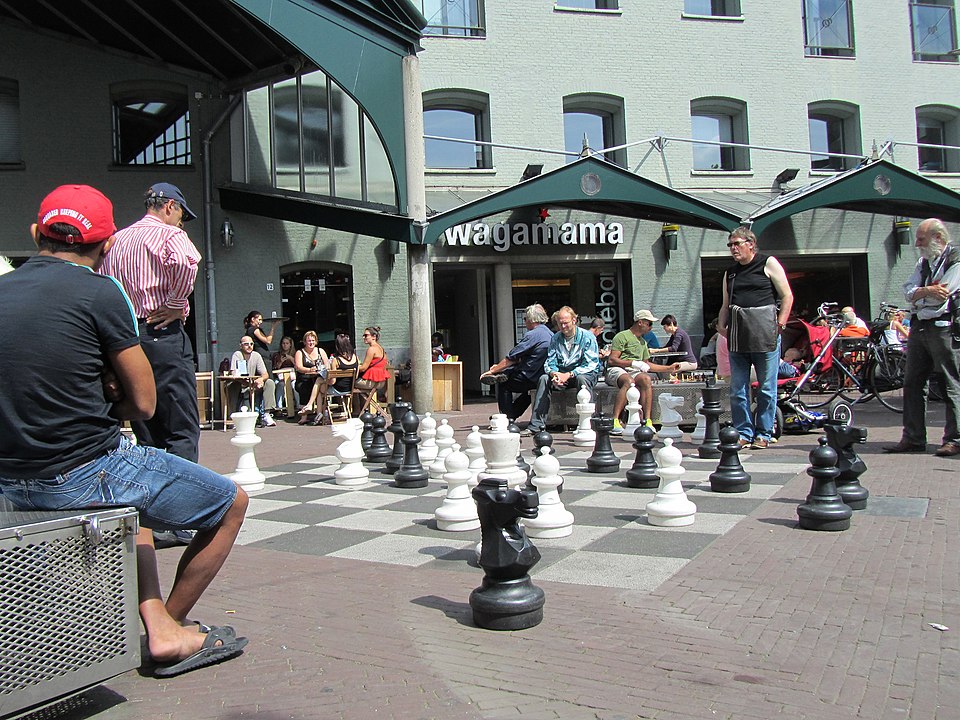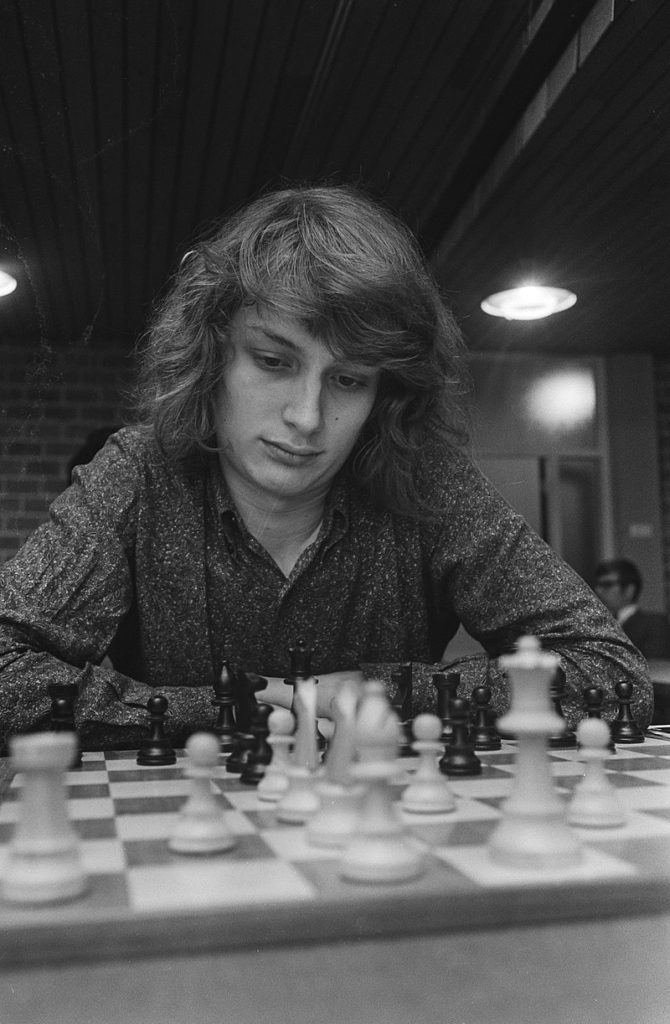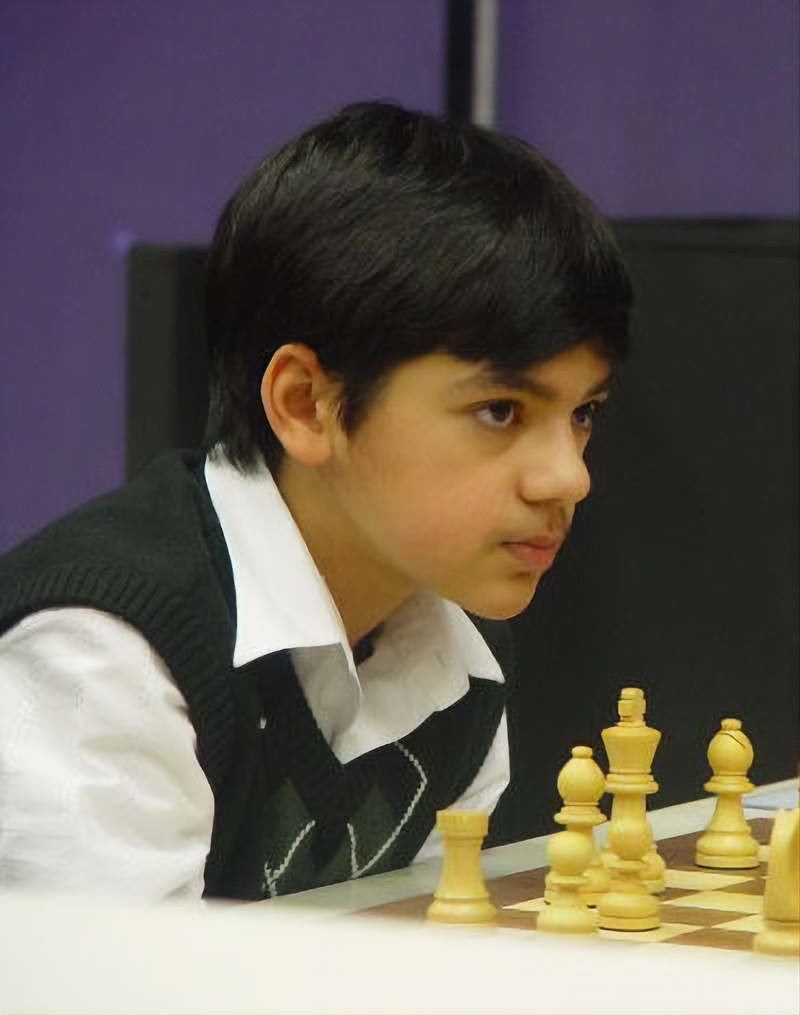The Dutch & Chess – Part 1: The Dutch Greats Posted by Sten on Dec 7, 2020 in Culture, Dutch Language, Dutch Vocabulary
With the miniseries The Queen’s Gambit, schaken (to play chess) has received a lot of attention. When I was a kid, I played schaak (chess) competitively with a Dutch schaakvereniging (chess club). I was never that good, let alone at Beth Harmon’s level, but I had my fun and victories. I could really identify with the long and exhausting games that could last 4 hours or more. With the accurate depiction of schaak, based on real partijen (parties) played between legendary spelers (players), it is a wonderful homage to the game. So I decided that I would do my own little miniseries on schaak in the Netherlands. In this three-parter, I will look at the following questions: Did the Dutch ever have a wereldkampioen (world champion)? How does chess vocabulary translate to Dutch? And what if you wanted to get started playing chess in the Netherlands yourself? Let’s begin with some famous Dutch players. I’ll discuss three players in different time periods, from the early 20th century to today. Let’s begin!
For other posts in this miniseries, click here.
The Legend of Legends: Max Euwe
THE name to know in the Dutch schaakwereld (chess world) is, without a doubt, Max Euwe. He’s like the grootvader (grandfather) of Dutch chess.
While probably hard to pronounce for non-natives, he was a wonderkind (prodigy) who won every single game at the first schaaktoernooi he joined at age 10. Born in 1901 in Amsterdam, he would go on to set unprecedented chess records, which still aren’t beaten today. Between 1921 and 1952, he won every single Dutch championship that he participated in. He was so good that the Dutch schaakbond (chess federation) decided to not let him participate in the Nederlands Kampioenschap (Dutch championship) anymore, and that kandidatentoernooien (candidate tournaments) would be held, whose winner would have the right to challenge Max Euwe for a partij (match).
Also on the international stage, Max Euwe did well. He was never at the sustained level of greatness as some other schaakmeesters (chess masters), but he held his own. Wereldkampioen (world champion) at the time, Alexander Alekhine, challenged him in 1935. If Euwe won this match, he would take Alekhine’s crown and become the wereldkampioen. They were to play 30 partijen in the Netherlands over a period of 80 days. Here’s what Max Euwe had to say about this challenge:
https://www.youtube.com/watch?v=nuyMzb5_tlU
The presenter is losing his match and gets advice from another huge chess player at the time, Cuban player José Raúl Capablanca. After asking both players how they felt about the upcoming Alekhine-Euwe match, he ends the segment saying the following:
We hebben dus van de beide schaakgrootmeesters gehoord dat er in elk geval wel enige hoop is op een goed resultaat voor onze vertegenwoordiger en in elk geval zijn we ervan overtuigd, dat ons een buitengewoon interessante match in oktober aanstaande te wachten staat.
(So we’ve heard from both chess grandmasters that there is definitely some hope for a good result for our representative (Euwe) and we are convinced, in any case, that an extraordinarily interesting match awaits us in October.)
What droops from these words is that it was generally not expected that Max Euwe had a real chance. And yet, he won – narrowly, 15.5-14.5, but he did it! Max Euwe winning the world championship was a huge boon for the Dutch schaakwereld, and it led to the founding of many schaakverenigingen. His wereldkampioenschap (world championship) would not last long, however. In his next match against Alekhine in 1938, he lost quite substantially.
Regardless, he kept playing throughout his life and would play the odd simultaan (simultaneous), where one player plays against many others at the same time, until his death. He was also president of the International Chess Federation FIDE from 1970 to 1978.
Euwe died in 1981. There are many schaaktoernooien and onderscheidingen (decorations) in his name, such as the Euwering (Euwe ring). This ring is awarded every five years to “een Nederlander met grote verdiensten voor de schaaksport” (a Dutch person with great accomplishments in the chess sport). There is also the Max Euwe Centrum (MEC), a center opened in 1986 on the square named after the grootmeester – the Max Euweplein.
Timman: A Close Second
Jan Timman, born in 1951, became the second schaakgrootheid (chess celebrity) after Max Euwe. He won the Dutch championships 9 times, and qualified for the World Championship multiple times. For a long time, he was at the very top of the world, but he never managed to become world champion. In 1993, he lost the world championship match against Anatoly Karpov.
Timman was also awarded the Euwering for his accomplishments and efforts in the schaaksport. The Euwering is only held temporarily, and is passed on to whoever is awarded the ring next. Timman held it from 1991 to 1996.
A Young Talent: Anish Giri
Anish Giri is a Russian-born Dutch chess player, who was an outstanding player from when he was young. In 2009, At only age 14, he completed the requirements for the Grandmaster title! Perhaps it doesn’t sound like that big a deal, having the stereotype of wonderkinderen (prodigies) in the schaaksport in mind, but it made him the youngest Grandmaster in the world at the time. It was also the year in which he participated in his first Nederlands Kampioenschap, which he handily won at age 15. Quite impressive to win your first time around! He went on to win the kampioenschap three more times. He does not take part in it, however, as there are bigger fish in the chess sea.
He is still an active player at the world’s top, ranking number 1 in the Netherlands according to rating and number 11 in the world. He’s been hovering around this position for a while, and had was number 3 of the world in 2016. While it is not expected that he becomes world champion anytime soon, he’s only 26, and a chess career can be long… We will see what amazing thing this talent will still bring us!
I only looked at a small selection of three Dutch top players. But of course, there are many more whom I can’t all do justice here. Do you want to learn more about the best Dutch chess players? Johan Hut at schaaksite.nl did an incredible job and wrote an article about every single one of the 40 top players from the Netherlands. In Dutch, of course, so you can practice your Dutch! Read it here.
What do you think of these players? Do you know some famous schaakspelers from your country? Let me know in the comments below!
See you on Thursday for Part 2 – learning all the Dutch chess vocabulary in the three acts of the game!

Build vocabulary, practice pronunciation, and more with Transparent Language Online. Available anytime, anywhere, on any device.








Comments:
johan:
Thanks Sten, (a more common Swedish and Nordic name than German I think).
An enjoyable read that!
Having invited comments and no-one else seemingly responding I thought I’d add a Scandinavian flavour…
a bit like the Dutch some great players pop up now and then. Most will know of Magnus Carlsen of Norway, but there’s also been Ulf Andersson of Sweden and Bent Larsen of Denmark down the years, well known in chess circles if not at world champion level like Carlsen!
Sten:
@johan Hi Johan!
Thanks for your comment!
You’re right, Sten is quite a rare name in Germany and the Netherlands, and I’ve seen it more in Scandinavian regions. I got lucky, I guess 🙂
Magnus Carlsen is impossible to ignore these days, what an incredible talent. He’s been a huge boost for chess, too. Is it true that he single-handedly propelled chess to become Norway’s national sport?
Ulf Andersson and Bent Larsen, of course! Great players.
johan:
Thanks Sten!
Yes for sure Magnus is very popular.
With the change to include more speed chess he also usually has an advantage, as he’s shown in world championship matches. As for national sport Norway otherwise of course very winter sport oriented. You’ll find people wandering around with skis in the middle of Oslo unlike other capital cities (in winter anyway 🙂 ), and with of course the big Holmenkollen ski jump hovering over the city like a castle might elsewhere, for example Prague and some other central European cities, or Edinburgh.
Sten:
@johan Hahah, the winter sports! Of course!